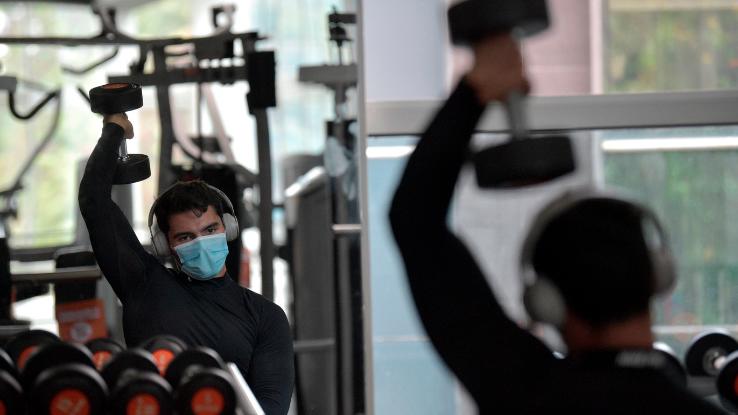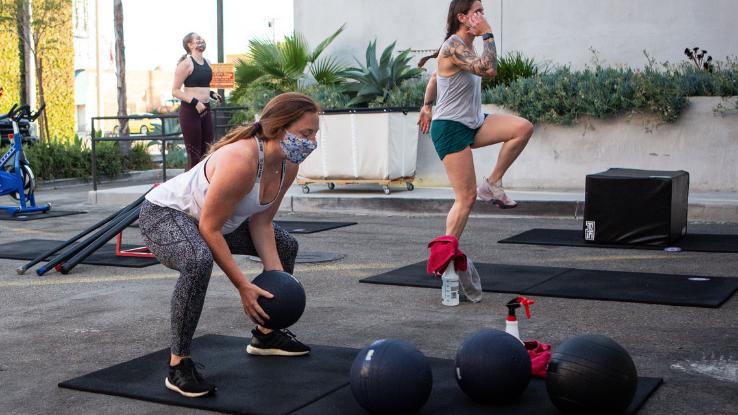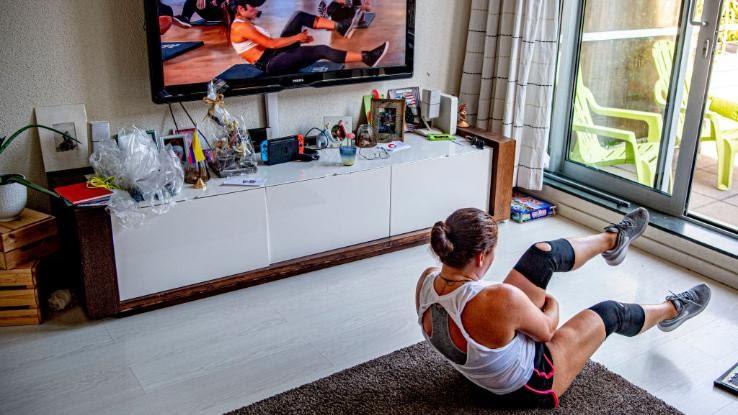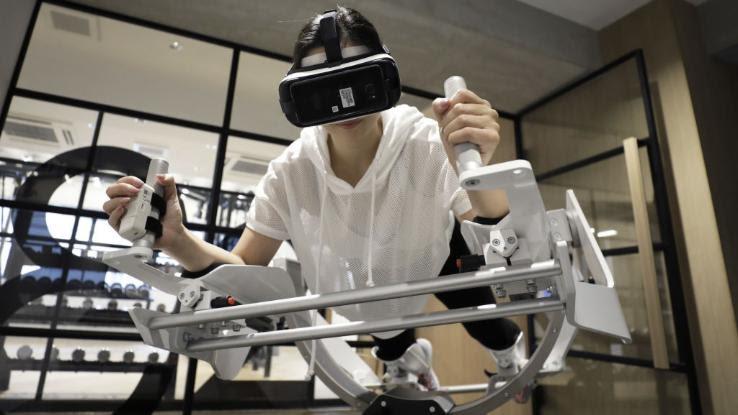How Has COVID-19 Affected Gyms and Gym-Goers?

When the COVID-19 pandemic broke out in the early months of 2020, traditional fitness facilities were among the first to take a hit. With safety precautions — like social distancing and shelter-in-place directives — sweeping the country, many gyms saw an overnight plunge in membership. While some exercise facilities were able to come up with creative ways to remain relevant during the pandemic, others were forced to shutter for good. COVID-19 vaccines have allowed many gyms to partially or even fully reopen. However, many fitness enthusiasts have also adapted to at-home workouts and virtual exercise classes. The COVID-19 pandemic has irreversibly changed the world of fitness – both for the better and for the worse.
Fitness in the Age of COVID-19
States tackle closures and stay-at-home regulations on a case-by-case basis, so it can be difficult to paint a broad-stroke picture of what fitness in the U.S. looks like amidst the pandemic. Some gyms have been forced to close down completely, while others have reopened with strict guidelines in place. Most, however, have fallen somewhere between these two extremes — reopening briefly, only to close their doors yet again whenever COVID-19 cases surge.

Gym owners must rethink and restructure their business practices to retain members during a global crisis. Can’t go inside to use the equipment? Some gyms, especially those in warmer climates like Los Angeles, California, will migrate dumbbells and exercise bikes outside, setting up ad hoc fitness centers in parking lots, parks, and on sidewalks.
Other gym owners will utilize Zoom to offer virtual classes and, in some cases, equipment rentals. You can stream classes from traditional gyms, like Crunch, sign up for monthly yoga and pilates classes, or even learn a new martial art from the comfort of your own home. It’s likely that these practices will persist even during periods when COVID cases are low and stay-at-home orders are lifted.
The Benefits of At-Home Workouts
In a way, moving fitness online was a bold experiment that was born out of necessity. Yet to a large extent, it’s had surprisingly positive results. After all, making at-home workouts more accessible has allowed many people to practice movement that works for them — and stave off some of that quarantine depression.

“When the COVID-19 crisis hit, we transitioned all of our clients to an online format,” Nat Huerta, owner of the Oakland-based Queer Gym told Women’s Health Magazine. “And now that our community is more accessible, we have nearly doubled in size. Going digital allows us to expand our mission beyond the four-mile radius of the gym.” Findings from a Wakefield Research Future of Fitness survey back this sentiment up. The survey, which gauged the responses of 1,000 adults who exercise, found that 97% had tried working out at home during quarantine and that 92% had participated in at-home workouts at least once a week.
Additionally, Wakefield Research discovered that 85% of those surveyed agreed that at-home workouts provided more benefits and accessibility than gyms, including:
- The ability to wear whatever you want and listen to your choice of music.
- Never having to wait around for a machine.
- Cost-efficiency, as online fitness options tend to be much cheaper.
- The ability to try a variety of different workout styles and exercises to see which ones work best for you.
- A judgment-free zone.
- Avoiding the inconveniences of packing your gym bag, driving to the gym, getting changed, and so on.
Will Gyms Be Able to Regain Members?
Perhaps unsurprisingly, the gyms and fitness companies that focus on providing at-home workout options and a strong sense of online community during the pandemic fare much better than those who haven’t. In addition to community-centric gyms like the YMCA and Huerta’s Queer Gym, products geared toward at-home fitness, like Peloton, have retained (and even grown) membership and revenue. Meanwhile, gyms like 24 Hour Fitness, which was forced to file for bankruptcy in June of 2020, have suffered.

Jenny Weller of Glofox put it well, saying, “As digital fitness continues to skyrocket, it’s clear the pandemic has changed the fitness market forever.” Over 180 million U.S. citizens have been fully vaccinated as of August 2nd, 2021. Regardless, the question remains – will traditional, in-person gyms continue to lose or gain members in the years to come?
There are some benefits to these in-person spaces, namely that social element — something we’re missing in so many aspects of our lives. For example, at an in-person gym, you can find a sparring partner and throw together a pick-up game. Another advantage? All that space and equipment. Sure, some people have created respectable at-home workout spaces, but not everyone has the ability to do so. Most people also lack access to steam rooms, pools and the wide range of exercise equipment offered at traditional gyms.
The Future of Fitness
Given that there are unique advantages to working out both at home and at the gym, which path will the fitness market of the future embrace? In all likelihood, it’ll be a mixture of the two. Content marketer Lucy Conner explains that “The fitness industry’s future is undoubtedly a hybrid one,” because folks will want that flexibility and convenience of signing up for a membership that gets them access to both in-person facilities and online classes.

Additionally, the interactive fitness equipment market has flourished throughout quarantine, with companies like Peloton, iFit, and FightCamp offering tech-based solutions that make working out convenient, communal, accessible, and fun — so long as you have those upfront costs covered. It’s clear that gyms will have to contend with these in-home competitors, but how?
When it comes to actual in-gym offerings, Cedric Bryant, president and chief science officer of the American Council on Exercise (ACE), told FastCompany that many gyms will also quite possibly shift to different fitness approaches going forward. “Instructors are really trying to create this kind of engaging, almost performance-like experience,” Bryant said. “They’re getting away from the one-size-fits-all, cookie-cutter approach to the more individualized, personalized approach.” COVID-19 will likely have a lasting impact on the future of fitness — one that isn’t necessarily a bad thing.





